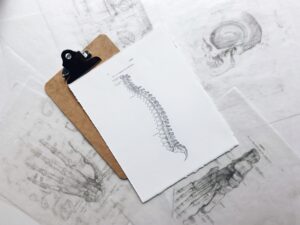If you have never had a bout of sciatica, you cant imagine how unusual and intense the pain can get. The condition usually occurs as a result of a herniated disk or a bone spur on the spinal column.
Sciatica is a result of the pinching of the sciatic nerve. It’s a single nerve that travels down the center of the spine, then branches off into the legs through the buttocks. When the nerve gets pinched, it sends a pain impulse into the legs, sometimes traveling all the way into the feet. For some people, the pain can be debilitating. For most people, the pain can be very sharp and intense.
For others, a pinched sciatic never might result in numbness or tingling in the legs and feet. It can exist as chronic pain for some people and acute pain for others. Regardless of how it affects someone, it is something that usually needs to be dealt with sooner rather than later. When you decide you are tired of enduring the pain related to sciatica, you will be happy to learn there are a number of treatment options available before surgery becomes inevitable.
Of course, back surgery should always be a last resort. Why? There would be no assurances that surgery wouldn’t lead to a lifetime of back issues that are almost as bad as sciatica. When you start considering other treatment options, you would be well advised to take a progressive approach. You should start with the least invasive options and work your way up until surgery becomes absolutely necessary. You will know when that point is because the chronic pain will become unbearable and start disrupting the quality of your life. At this point, we would like to take you through the progression of treatment options that will help you with your sciatica.
What Helps Sciatica?
The least invasive way to help with sciatica is for you to purchase over-the-counter pain medications like aspirin. If you were to get lucky, a low-grade painkiller might be enough to take the edge off. While you are taking over-the-counter pain medications, you might want to start physical therapy. In a lot of cases, strengthening the muscles in the back, neck, and legs helps hold the spine stationary. If your spine is stationary being held in place by stronger muscled, it would likely result in lower incidents of pain. A good physical therapist would likely target the following activities to help you battle sciatica:
- Strengthen the spine and muscles of the lower back, abdomen, buttocks, and hip.
- Exercises that target core strength
- Stretching exercises for the legs and back
- Aerobic exercises like jogging, swimming, and speed walking
If physical therapy doesn’t make adequate improvement, your doctor might order a few days of bed rest. After laying flat on your back and perhaps taking prescription pain medications, the inflammation in your back and neck would have a chance to subside. That could take pressure off the area of the spine where the sciatic nerve is getting pinched.
After trying bedrest, you might want to try some holistic treatment options. While taking precautions, you might derive benefits from yoga, acupuncture, or massage therapy. If you choose this path, you will want to make sure the people who are serving you are well trained. At some point, you might like to visit our office. As a provider of chiropractic services, we have a great understanding of the human body, especially the skeletal system. We would start treatment by getting images of your neck, back, and spine. From those images, we should be able to determine the point at which the sciatic nerve is getting pinched.
Based on that location, we could do a series of manual spine adjustments that could bring pain relief in as few as three or four sessions. If chiropractic adjustments do the trick, you will be able to avoid surgery. If you have to continue on with intermittent chiropractic adjustments, that would be a small price to pay in order to avoid the knife.
If you have been through the aforementioned progression and start to realize a good chiropractor might be the solution to your sciatica, we are here for you. We would bring you in, do our assessment, and start your treatments right away. If you would like to know more about our services and pricing, you can call our office at 205-637-1363. During that call, we would be happy to give you an appointment.







